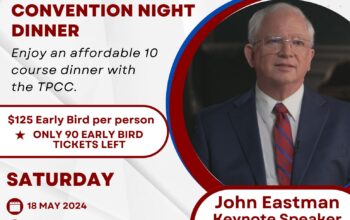This is an important article. It explains where people, based on religion are in the political process. If you want to know about winning campaigns, you need to understand the demographics of the process.
“Jewish voters continue to mostly align with the Democrats. About seven-in-ten Jewish voters (69%) associate with the Democratic Party, while 29% affiliate with the Republican Party. The share of Jewish voters who align with the Democrats has increased 8 percentage points since 2020.
Thanks to the Hamas take over of campuses, this number will go up in November.
Party identification among religious groups and religiously unaffiliated voters
Pew Research Center, 4/23/24 https://www.pewresearch.org/politics/2024/04/09/party-identification-among-religious-groups-and-religiously-unaffiliated-voters/
The relationship between partisanship and voters’ religious affiliation continues to be strong – especially when it comes to whether they belong to any organized religion at all.
The gap between voters who identify with an organized religion and those who do not has grown much wider in recent years.
Protestants mostly align with the Republican Party. Protestants remain the largest single religious group in the United States. As they have for most of the past 15 years, a majority of Protestant registered voters (59%) associate with the GOP, though as recently as 2009 they were split nearly equally between the two parties.
Partisan identity among Catholics had been closely divided, but the GOP now has a modest advantage among Catholics. About half of Catholic voters identify as Republicans or lean toward the Republican Party, compared with 44% who identify as Democrats or lean Democratic.
Members of the Church of Jesus Christ of Latter-day Saints remain overwhelmingly Republican. Three-quarters of voters in this group, widely known as Mormons, identify as Republicans or lean Republican. Only about a quarter (23%) associate with the Democratic Party.
Jewish voters continue to mostly align with the Democrats. About seven-in-ten Jewish voters (69%) associate with the Democratic Party, while 29% affiliate with the Republican Party. The share of Jewish voters who align with the Democrats has increased 8 percentage points since 2020.
Muslims associate with Democrats over Republicans by a wide margin. Currently, 66% of Muslim voters say they are Democrats or independents who lean Democratic, compared with 32% who are Republicans or lean Republican. (Data for Muslim voters is not available for earlier years because of small sample sizes.)
Democrats maintain a wide advantage among religiously unaffiliated voters. Religious “nones” have become more Democratic over the past few decades as their size in the U.S. population overall and in the electorate has grown significantly. While 70% of religiously unaffiliated voters align with the Democratic Party, just 27% identify as Republicans or lean Republican.
Religion, race and ethnicity, and partisanship
Over the past few decades, White evangelical Protestant voters have moved increasingly toward the GOP.
- Today, 85% of White evangelical voters identify with or lean toward the GOP; just 14% align with the Democrats.
- Over the past three decades, there has been a 20 percentage point rise in the share of White evangelicals who associate with the GOP – and a 20-point decline in the share identifying as or leaning Democratic.
Over the past 15 years, the GOP also has made gains among White nonevangelical and White Catholic voters.
About six-in-ten White nonevangelicals (58%) and White Catholics (61%) align with the GOP. Voters in both groups were equally divided between the two parties in 2009.
Partisanship among Hispanic voters varies widely among Catholics and Protestants.
- 60% of Hispanic Catholic voters identify as Democrats or lean Democratic, but that share has declined over the past 15 years.
- Hispanic Protestant voters are evenly divided: 49% associate with the Republican Party, while 45% identify as Democrats or lean Democratic.
A large majority of Black Protestants identify with the Democrats (84%), but that share is down 9 points from where it was 15 years ago (93%).
Party identification among atheists, agnostics and ‘nothing in particular’
Atheists and agnostics, who make up relatively small shares of all religiously unaffiliated voters, are heavily Democratic.
Among those who identify their religion as “nothing in particular” – and who comprise a majority of all religious “nones” – Democrats hold a smaller advantage in party identification.
- More than eight-in-ten atheists (84%) align with the Democratic Party, as do 78% of agnostics.
- 62% of voters who describe themselves as “nothing in particular” identify as Democrats or lean Democratic, while 34% align with the GOP.
Partisanship and religious service attendance
Voters who regularly attend religious services are more likely to identify with or lean toward the Republican Party than voters who attend less regularly.
In 2023, 62% of registered voters who attended religious services once a month or more aligned with Republicans, compared with 41% of those who attend services less often.
This pattern has been evident for many years. However, the share of voters who identify as Republicans or lean Republican has edged up in recent years.
For White, Hispanic and Asian voters, regular attendance at religious services is linked to an increase in association with the Republican Party.
However, this is not the case among Black voters.
Only about one-in-ten Black voters who are regular attenders (13%) and a similar share (11%) of those who attend less often identify as Republicans or Republican leaners.
Higher GOP association among regular attenders of religious services is seen across most denominations.
For example, among Catholic voters who attend services monthly or more often, 61% identify as Republicans or lean toward the Republican Party.
Among less frequent attenders, 47% align with the GOP.
Black Protestants are an exception to this pattern: Black Protestant voters who attend religious services monthly or more often are no more likely to associate with the Republican Party than less frequent attenders.



